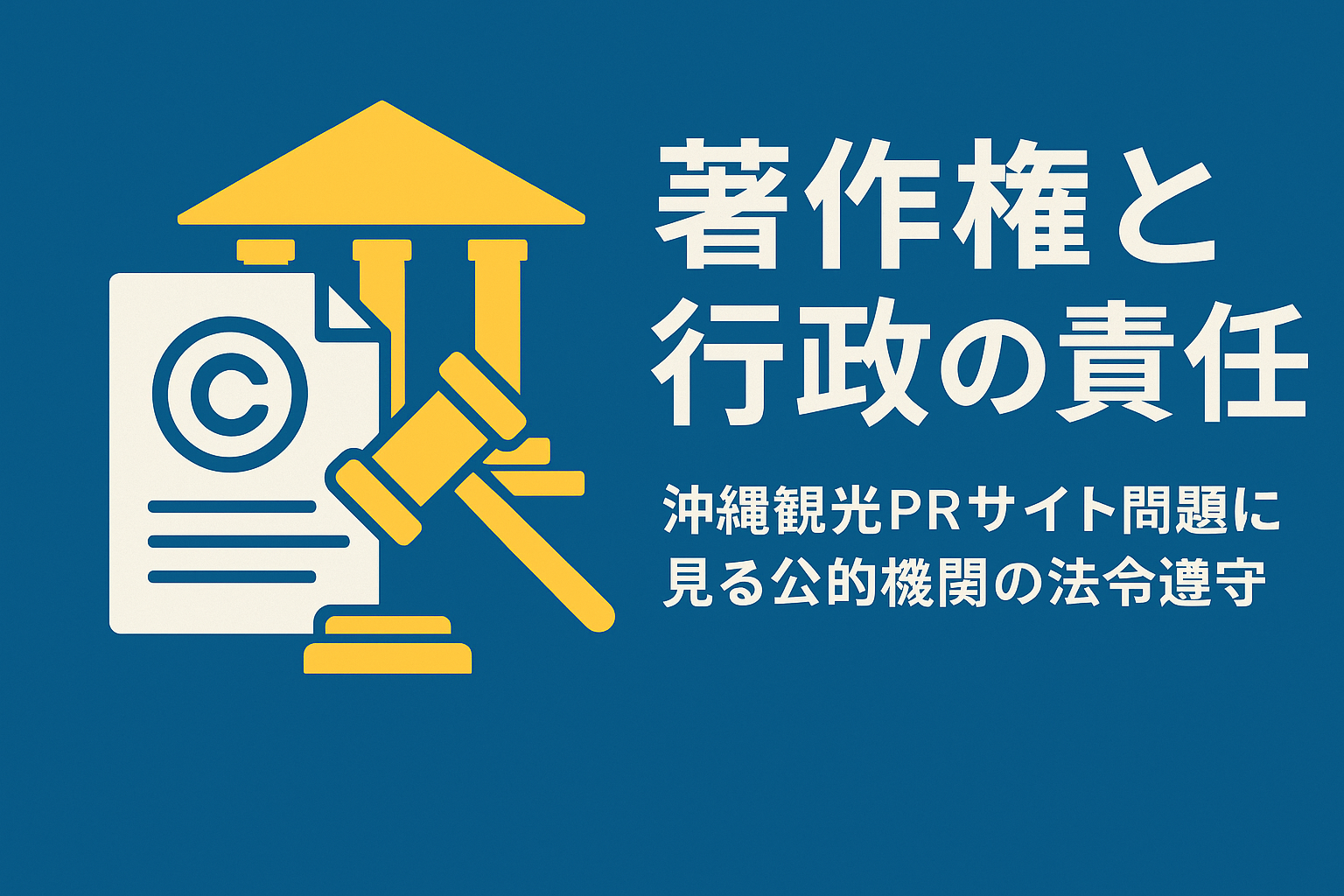A “Tourism PR” Campaign That Undermines Public Trust
The Okinawa tourism PR website “Okinawan Pearls,” designed to promote the appeal of Okinawa, has sparked controversy after it was revealed that the site used and altered a professional photographer’s work without permission. This issue goes beyond a simple case of copyright infringement; it raises serious concerns about the potential for illegal conduct by a national government body and highlights a disconnect between prosecutorial decisions and public perception.
Overview of the Issue: How the Photographer’s Rights Were Violated
- The affected party is a professional photographer residing in Sapporo.
- The photographs were not only used without permission but were also altered.
- The decision to use the photos is said to have been led by the then-director of the Okinawa General Bureau of the Cabinet Office.
The key concern here is the possibility that a clear act of copyright infringement was carried out in an organized manner.
The Prosecutor’s Decision and the Review Board’s Response
- The Naha District Public Prosecutors Office’s Ishigaki Branch initially chose not to indict the Cabinet Office, citing lack of suspicion.
- In response, the Ishigaki Committee for the Inquest of Prosecution ruled this decision “unjust.”
- Their reasoning: “The conclusion is far removed from ordinary common sense and public sentiment, and therefore unacceptable.”
This criticism is not based on formal legal arguments, but rather reflects a sound, citizen-based perspective on the role of public institutions.
Public Institutions and Copyright: Why Systemic Abuse Matters
Copyright law is a foundational legal framework designed to protect the personality and labor of creators. If this law is violated by a state agency, the implications are particularly serious:
- A private company would likely be held liable for damages through civil litigation.
- Public institutions bear an even greater duty to comply with the law.
- The improper use of copyrighted material in a taxpayer-funded PR campaign constitutes a double betrayal of public trust.
The Significance of a Reinvestigation: A Litmus Test for Restoring Trust
Following the decision by the Ishigaki review board, the Ishigaki Branch of the Naha District Public Prosecutors Office is set to reopen the investigation. This is not a mere procedural step—it carries profound social significance:
- It offers a chance to address disparities in copyright awareness between the public and private sectors.
- It reaffirms the importance of prosecutorial neutrality and the value of civic involvement in the justice system.
- It increases pressure on government bodies to improve transparency and accountability in their communications.
A PR Campaign That Respects the Rules
Promoting the beauty of Okinawa to the world is a worthwhile goal, but not if it comes at the expense of creators’ dignity and the rule of law. Both tourism and trust must be grounded in proper procedures and transparent accountability. This reinvestigation offers a valuable opportunity to forge a healthier relationship between tourism administration and freedom of expression.

